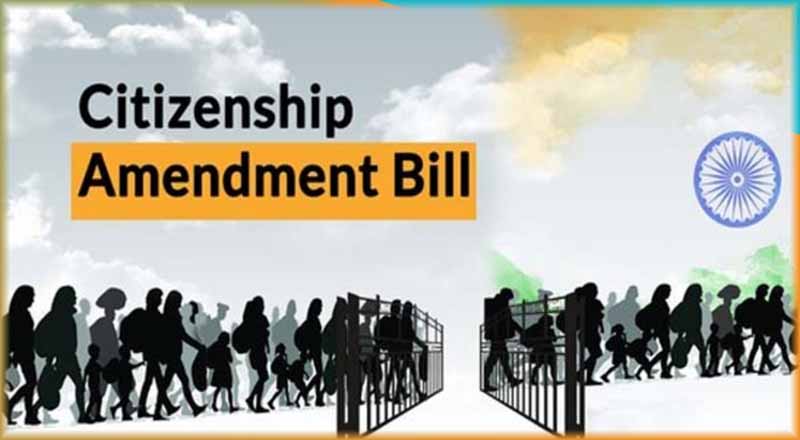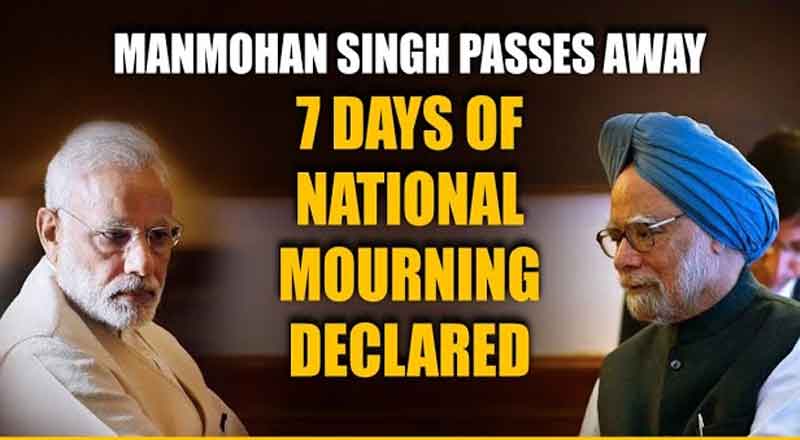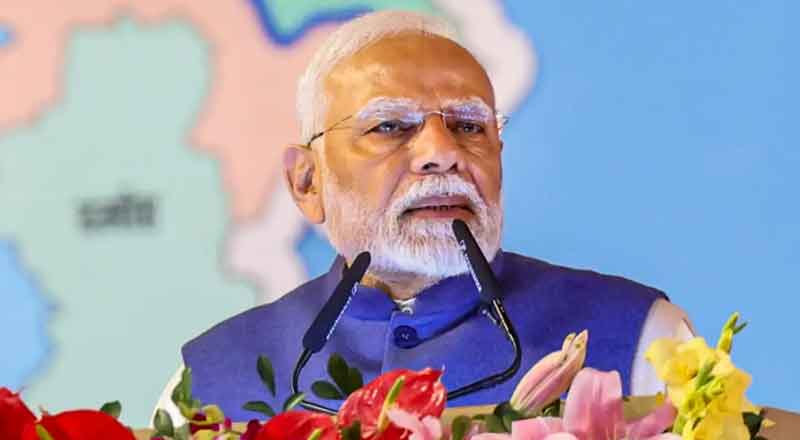The Citizenship (Amendment) Bill 2019, that seeks to give Indian nationality to non-Muslim refugees from Pakistan, Bangladesh and Afghanistan, was passed by the Lok Sabha earlier this week. The Bill seeks to amend the definition of illegal immigrant for Hindu, Sikh, Parsi, Buddhist and Christian immigrants from Pakistan, Afghanistan and Bangladesh, who have lived in India without documentation. They will be granted fast-track Indian citizenship in six years. So far, 12 years of residence has been the standard eligibility requirement for naturalisation.
The Citizenship (Amendment) Bill, which was passed by the Rajya Sabha on Wednesday, will now go to the President for his assent. As many as 125 lawmakers voted in the favour of the Citizenship (Amendment) Bill and 99 against it. Here is all you need to know about the CAB.
The proposed legislation applies to those who were “forced or compelled to seek shelter in India due to persecution on the ground of religion”. It aims to protect such people from proceedings of illegal migration. The cut-off date for citizenship is December 31, 2014, which means the applicant should have entered India on or before that date. Indian citizenship, under present law, is given either to those born in India or if they have resided in the country for a minimum of 11 years. The Bill also proposes to incorporate a sub-section (d) to Section 7, providing for cancellation of Overseas Citizen of India (OCI) registration where the OCI card-holder has violated any provision of the Citizenship Act or any other law in force.
Besides the Bhartiya Janata Party (BJP), the CAB was supported by JD(U), SAD, AIADMK, BJD, TDP and YSR-Congress. The Shiv Sena did not participate in the voting. The citizenship bill was on Monday passed by the Lok Sabha with a majority of 311 votes against 80. Here is all you need to know about the Citizenship (Amendment) Bill or CAB:
In other words, the CAB paves way for Indian citizenship to lakhs of immigrants, who identify themselves with any of the given religions, even if they lacked any document to prove their residency. It also means that any immigrant who does not belong to the said communities would not be eligible for Indian citizenship.
Also, as per the Citizenship (Amendment) Bill, any illegal immigrant from Afghanistan, Pakistan and Bangladesh who belongs to these said communities will not be deported or imprisoned if they are not carrying any valid documents for their residency in India.
Earlier, the duration of the immigrants’ residency was 11 years. The amended bill has reduced it to five years. This means that immigrants from the three countries and from the mentioned religions, who have entered India before December 31, 2014, would not be treated as illegal immigrants.
The Citizenship (Amendment) Bill exempts certain areas in the North-East from this provision.
The Citizenship (Amendment) Bill would not apply to tribal areas of Assam, Meghalaya, Mizoram and Tripura as included in Sixth Schedule of the Constitution and the area covered under the Inner Limit notified under the Bengal Eastern Frontier Regulation, 1873.
This effectively means that Arunachal Pradesh, Nagaland and Mizoram along with almost whole of Meghalaya and parts of Assam and Tripura would stay out of the purview of the Citizenship (Amendment) Bill.
Besides, the citizenship bill also makes amendments to provisions related to the Overseas Citizens of India (OCI) cardholders. As per the citizenship bill, a foreigner may register as an OCI under the 1955 Act if they are of Indian origin (e.g., former citizen of India or their descendants) or the spouse of a person of Indian origin.
The Citizenship (Amendment) Bill entitles the OCI cardholders to benefits such as the right to travel to India, and to work and study in the country. The Citizenship Bill, which was passed in the Rajya Sabha, amends the Act to allow cancellation of OCI registration if the person has violated any law notified by the Central government.
CAB TOTALLY DESTROYS MINORITIES: HD DEVE GOWDA
Former prime minister HD Deve Gowda on Wednesday said he was opposed to the Citizenship (Amendment) Bill as “it will totally destroy minorities and is unconstitutional”.
The Janata Dal (Secular) president said the Bill was contrary to the principles of secularism and other rights incorporated in the Constitution.
“You can’t go against secularism and other constitutional principles,” HD Deve Gowda said, adding, “I can’t support such a Bill as it would create unrest in the country.
Trinamool MP Derek O’Brien too termed the Bill as “unconstitutional” and warned of people’s movement against the Bill. He also said it would be challenged in the Supreme Court. He said the present bill has been drawn from “Nazi Coffee Book” and is part of BJP’s “agenda”.
Samajwadi Party MP Javed Ali Khan said through the proposed legislation, the BJP was fulfilling the dream of Muhammad Ali Jinnah, the founder of Pakistan
CITIZENSHIP BILL NOT TO SNATCH ANYONE’S INDIAN CITIZENSHIP: AMIT SHAH
To repeated questions from the Opposition of Muslims being left out, Home Minister Amit Shah said Muslims from other countries have the right to apply for Indian citizenship as per existing rules. As many as 566 Muslims have been given citizenship, he said.
He attacked opposition the Congress saying statements by the party’s leaders match those of Pakistani leaders on not just the citizenship bill but also on scrapping of Article 370.
Amit Shah said the bill seeks to correct the wrong done by the partition of the country on religious lines. He went on to attack the Congress for alleged doublespeak on the issue, saying the party had during its rule given Indian citizenship to 13,000 Hindus and Sikhs from Pakistan without raising a word about the same for other communities.
He also said the bill does not violate Article 14 of the Constitution as it does not prohibit laws based on reasonable classification.





